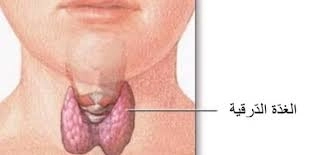
Hypothyroidism: Symptoms and Why Diagnosis Is Often Delayed
Published on: 2025-06-21 | Written by: Dr. Rasha Farouk, Consultant in Therapeutic Nutrition and Treatment of Obesity and Thinness
Hypothyroidism is a common condition that significantly affects the body’s vital functions. Dr. Rasha Farouk, specialist in internal medicine and therapeutic nutrition, explains that many patients suffer from its symptoms for long periods without realizing the cause, leading to delayed diagnosis and worsening health.
What Is Hypothyroidism?
Hypothyroidism occurs when the thyroid gland doesn’t produce enough thyroxine hormone, resulting in slowed metabolism. This hormone is essential for regulating heart function, digestion, energy, and mood.
Causes of Hypothyroidism
-
Autoimmune inflammation (such as Hashimoto’s disease)
-
After thyroid surgeries
-
Iodine deficiency
-
Certain medications (like lithium)
-
Genetic predisposition
Symptoms of Hypothyroidism
Symptoms usually develop gradually and include:
| Symptom | Explanation |
|---|---|
| Fatigue and exhaustion | Due to slowed metabolic activity |
| Weight gain | Resulting from reduced calorie burning |
| Cold extremities | Due to weak blood circulation |
| Hair loss and dry skin | Caused by lack of hormone regulation in tissues |
| Depression and mood swings | Because the hormone affects the nervous system |
| Slowed heart rate | Due to cardiac function disruptions |
| Constipation | From decreased digestive tract movement |
Why Is Diagnosis Often Delayed?
Dr. Rasha Farouk explains that the main reason is the similarity of hypothyroidism symptoms to other common conditions like depression or anemia, which leads to misdiagnosis or being overlooked as general fatigue.
How Is It Diagnosed?
-
Blood tests for TSH and T4 hormones
-
Clinical examination to assess symptoms
-
Thyroid ultrasound may also be used in some cases
Treatment and Follow-Up
The primary treatment is taking a daily dose of synthetic thyroxine (levothyroxine), as prescribed.
Dr. Rasha Farouk advises regular blood tests to monitor hormone levels and adjust dosage as needed, with strict adherence to the medication schedule.
When Should You See a Doctor?
Seek medical advice if you notice:
-
Unexplained fatigue
-
Sudden weight gain
-
Mood changes
-
Irregular menstrual cycles

